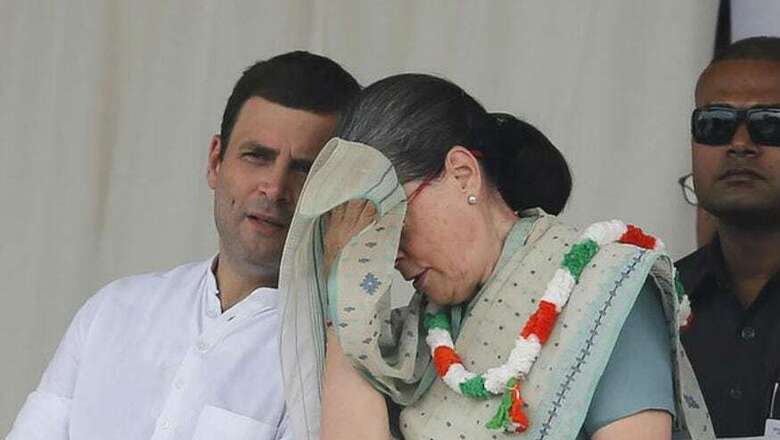
views
Rahul Gandhi, will in all probability, be elected unopposed as the 17th President of the Congress party next month. Notwithstanding the fact that the party has laid out an elaborate election schedule, it is unlikely that anybody will contest him. Though there has been a certain inevitability about his taking over, the fact is that it has taken so long partly due to Rahul Gandhi’s insistence on going through the election process, rather than directly being appointed the President.
The last time a contest took place for the President’s post in the Congress was 16 years ago in 2001, when Jitendra Prasada contested Sonia Gandhi, and lost. Three years after she succeeded Sitaram Kesri as the party chief on April 6 1998, Sonia Gandhi ordered organisation elections in the party from the block to the AICC presidentship, including the all-powerful Congress Working Committee (CWC).
Unlike his mother, Rahul Gandhi has had a long gestation period. Ever since 2013, when he was made the party Vice-President, it was never in doubt that he would take over as the President of the party. It was never a question of whether, but when. Sonia Gandhi, on the other hand, was pitchforked into taking over. Following Sitaram Kesri’s calamitous stewardship of the organisation, there was a revolt in the party, which ultimately saw the CWC pass a resolution easing him out as president of the party and requesting Sonia Gandhi to take over.
It’s ironical that two of the key players who backed Sonia Gandhi’s replacement of Sitaram Kesri, Jitendra Prasada and Sharad Pawar, both eventually went on to revolt against her. A year after she took over, Pawar in 1999, along with PA Sangma and Tariq Anwar, raised the banner of revolt with the foreign origin issue and ultimately left the party to form the Nationalist Congress Party. Jitendra Prasada stayed on in the Congress but challenged her for the presidentship.
While Sonia Gandhi stumbled in her initial years and struggled to find her footing, Jitendra Prasada and Rajesh Pilot fancied their chances. Pilot chose to keep his powder dry, while Prasada took the plunge and challenged her, only to lose badly. The once powerful political secretary to Prime Minister PV Narishimha Rao was left to virtually fend for himself. Ranged on the side of Sonia Gandhi were all the regional satraps and stalwarts like Pranab Mukherjee, Arjun Singh, Shiv Shankar, Karunakaran and AK Antony.
Sonia Gandhi reached out to Jitendra Prasada after the elections and moves were afoot to rehabilitate him in the decision-making bodies of the party, but his demise put an end to it. Unlike his mother, Rahul Gandhi’s elevation looks like a smooth affair. However, his challenges are no less daunting. He takes over at a time when the Congress is at its lowest and is not even recognised as the principal opposition party in Lok Sabha. Its vote share is at an all-time low and it is in power in only five states in the country, as compared to the 18 ruled by BJP.
The Congress party’s cadres are also demoralised and demotivated and the party has been on the ropes since its mauling in the 2014 general elections.
At this point, Rahul’s immediate challenge is to convert the huge opportunity that the three young turks of Gujarat have provided the party, which can ultimately translate into a victory for the party. He must reorganise and restructure the moribund party organisation.
As party president, Rahul Gandhi can no longer play the reluctant politician, nor can he take leave of absence whenever he wishes to. Rahul needs to fight from the front and demonstrate that he has it in him to lead the Congress out of the low morals it finds itself in. He also needs to make the transition from being just an opposition leader to present an alternative vision of governance. Rahul Gandhi will soon realize that the tough part begins now.
Author is a senior journalist. Views are personal.




















Comments
0 comment